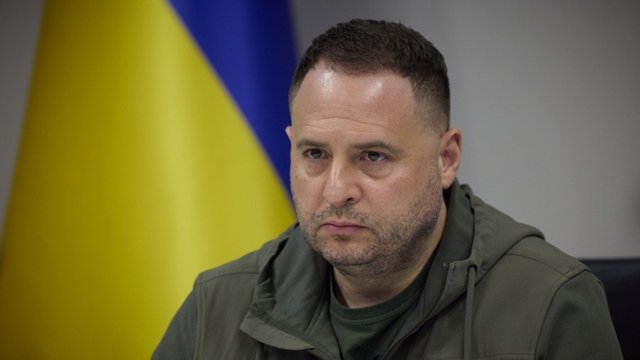There’s much in common between Ukraine and Central Asia states – Yermak

There is much more in common between Ukraine and the Central Asian states than it seems, head of the Office of the President of Ukraine, Andriy Yermak, wrote in a column for the Daily Sabah.
“Yurts of invincibility in Ukrainian cities are a reminder of the joint liberation struggle after the collapse of the Romanov empire, of joint pain from the Holodomor in the fertile steppes of the West and East, and of the desire to protect one's way of life,” he wrote.
Yermak expressed gratitude for voting on Ukrainian resolutions at the UN.
“We realize that in certain circumstances even ‘abstaining’ is a manifestation of courage, not to mention a systematic voice ‘pro,’" he noted.
According to him, “not only Ukrainians face Moscow's territorial claims as revenge for the lack of piety towards its ambitions.”
“Both the former and the latter are known perfectly well to our friends in Kazakhstan. Both Ukrainians and Uzbeks experienced gas blackmail in dead of winter. Besides Kyiv, Bishkek is perfectly aware of the bad odds to get the Kremlin's proteges extradited and tried. In both Dushanbe and Ukrainian Crimea, they know what a powerful tool of pressure the Russian military base may be. On top of that, I believe both a stud farmer in the Ashgabat area and the Bucha equestrian club owner agree on the kind of punishment that racehorse murderers deserve,” Yermak said.
He stressed that “what is happening in Ukraine is not a proxy conflict between Moscow and Washington, as presented by Russian propaganda. We are the people, not proxies.”
“Everything is simple in this war: There is an aggressor and there is a victim of aggression. The victim has the right to defend himself in all ways available. In particular, seeking support abroad. But we would not need it if Russia were not obsessed with ‘greatness,’” the head of the President’s Office noted.
In order to understand what is happening, Yermak suggested to review the Soviet film "White Sun of the Desert" again. “Ask yourself how the Red Army soldier Fyodor Sukhov was brought from Samara to Turkestan. What was he doing there? The answer is on the surface: He was doing perfectly the same thing as Alexander Sukhov from Tver, who was killed in Ukraine last year. He brought us ‘Russian peace’ with weapons in his hands. Simply put, he was a conqueror, not a liberator,” he wrote.
Moscow, Yermak says, consistently intervenes in the integration processes in the Central Asian region in order to maintain its long-standing role as an arbitrator. “This is nothing but a continuation of the imperial practice of drawing borders without taking ethnic maps into account. Moscow has established close relations with the Afghan Taliban, despite the fact that Russia designates it as a terrorist organization. Today, many are inclined to consider such convergence as a stabilizing factor. But what will happen next? Given the long history of the Kremlin's use of radical movements, the question is easy to answer,” he said.
“Trying to build a ‘cheaper’ empire, President Vladimir Putin-era Russia repeatedly resorts to the racketeering strategy: The Kremlin tends to create a problem, and then offers its (by default – non-alternative and very expensive) services to solve it,” Yermak says.









